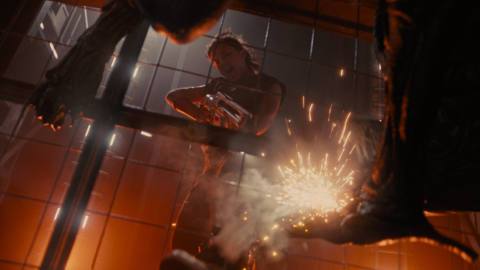
Fede Álvarez may have been the perfect director to refresh the Alien film franchise. His movie Alien: Romulus is incredibly well shot, with the camera slinking like a predator down each beautiful hallway in the failing Romulus space station, building tension with each step the characters take. Problem is, he just happened to be the worst possible writer for the job, too. When it comes time for those characters to speak, the whole film falls apart, turning into a hollow imitation of the better movies that came before it. It’s obvious Álvarez loves the Alien franchise. It just feels like he loves it a little too much.
You can feel Álvarez’s enthusiasm for the franchise during every moment of the movie, but it too often bleeds into the characters, washing out any semblance of unique personalities in favor of making them amorphous blobs that can be crammed together into the rough shape of past Alien movies. Alien: Romulus feels weirdly like Ernest Cline’s novel Ready Player One, where the characters worship pop culture so fanatically and thoroughly that their favorite shows, movies, and games are indistinguishable from their actual personalities. Similarly, none of Romulus’ characters feel like believable people who could inhabit the Alien universe. They feel like 20-somethings who watched Alien movies obsessively, then got transported into their favorite sci-fi setting.
Nearly every other line in Romulus is a reference to another movie in the franchise, or feels self-consciously tied to the series’ past. More than once, a character almost literally turns to the camera to recite a catchphrase, like a repetition of Alien’s memorable line “I can’t lie to you about your chances, but you have my sympathies.” And each time, that line is delivered with a bizarre, atonal resonance that’s rooted in reference to the Alien series as a product, not in the movie we’re actually watching.
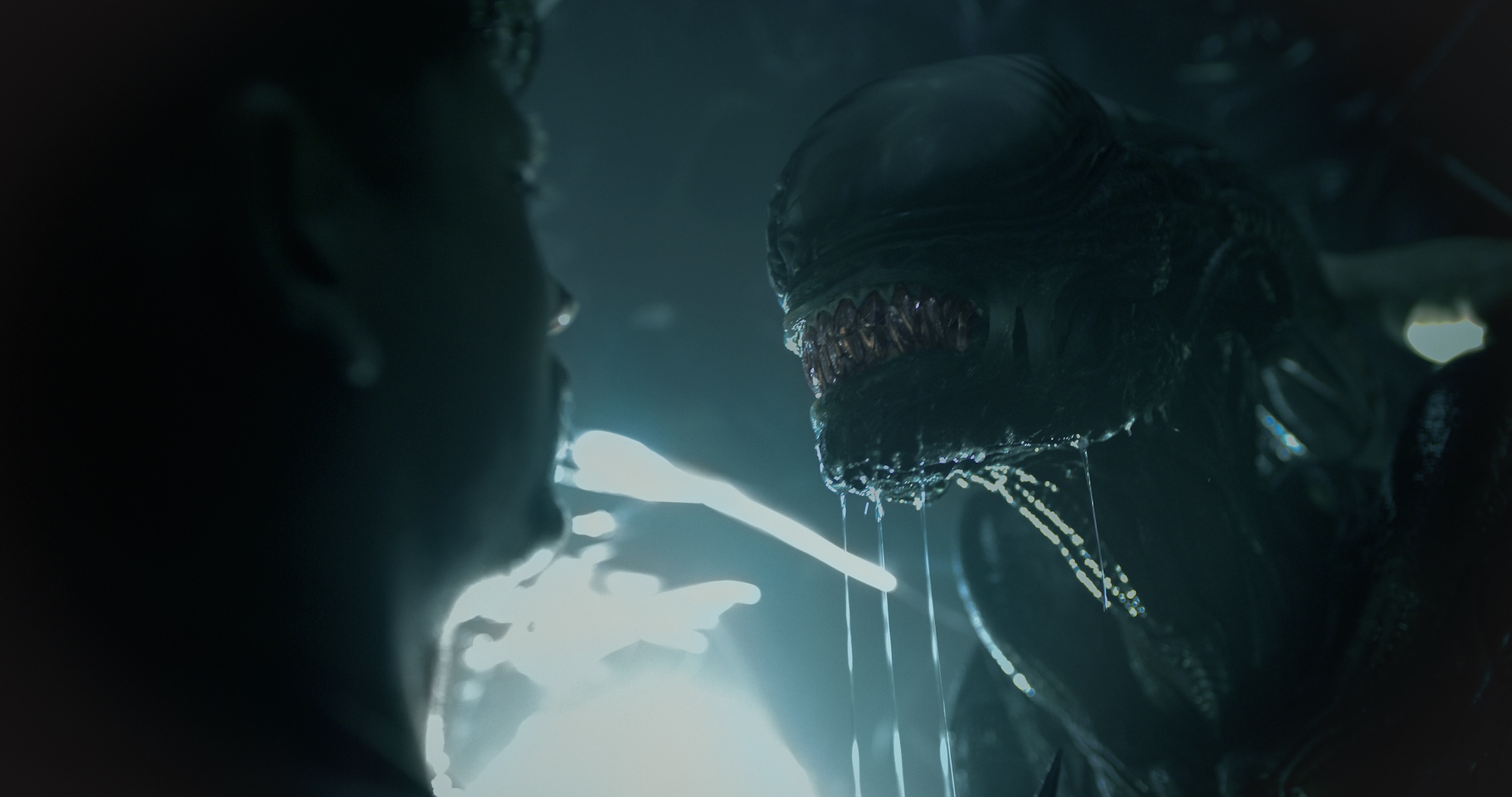
Like Steven Spielberg’s Ready Player One movie adaptation, Alien: Romulus mostly looks great — and far better than the script deserves. Spielberg’s action set-pieces and sense of grandeur aren’t at their peak in Ready Player One, but they’re still present, particularly when he’s emulating The Shining in one of the movie’s last sequences. It’s exciting and visually engaging, but at best, it still feels like an emptier version of a classic.
The same is true for Álvarez with Romulus. He shows tremendous craft in recreating the kind of grimy, smoky images that make Ridley Scott’s Alien and James Cameron’s Aliens so textured and gorgeous. What holds back both Ready Player One and Romulus, however, is that their references are so complete and carefully curated, compared to the actual original stories around them, that the new material feels lifeless. Romulus’ version of this formula is far more successful than Ready Player One’s, but the distracting sense of pure facsimile is still present. Worst of all, the best moments in both films are really just reminders of the better, more exciting movies we’ve already seen.
Romulus’ familiar-looking locations — drippy, underlit, industrial spaces, a dark and foreboding planetary surface, and so forth — are plagued by this sense of bizarre, uncanny-valley imitation of life. So are the characters — and none so much as protagonist Rain (Civil War co-star Cailee Spaeny). It’s clear that the starting point for Rain was Alien’s Ripley: a capable survivor, and a staple in the all-time canon of “cool” characters. But Ripley is cool in a way that’s decidedly unmodern. She’s competent, but not a genius. She solves problems as often with luck and gut instincts as with cleverness. More importantly, Ripley is a little mean. She’s clearly unconcerned about being likable, yet she’s unmistakably charming — both on the page and in Sigourney Weaver’s timeless performances.
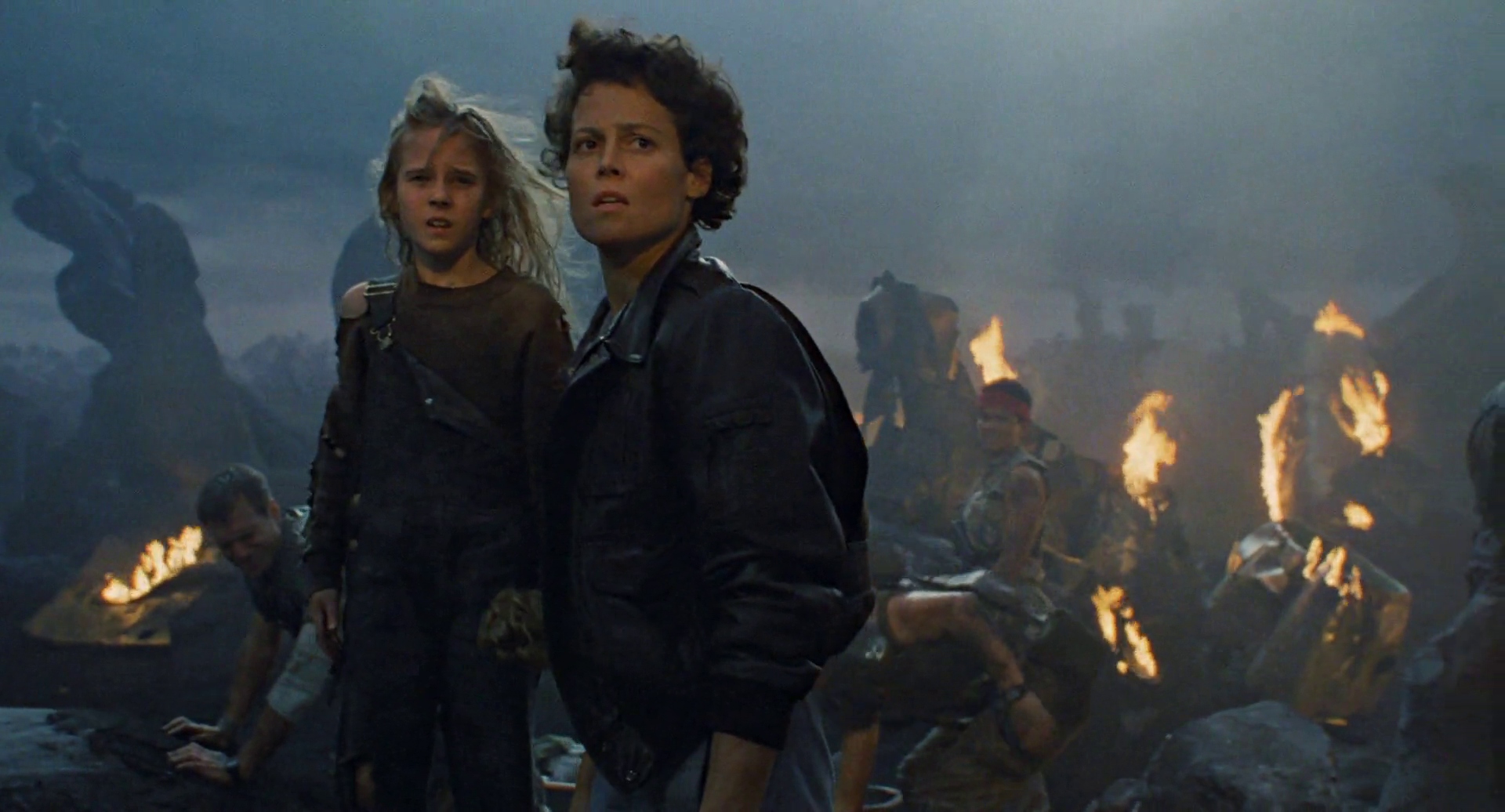
Rain, however, is definitively cut from modern blockbuster cloth. She’s Rey Skywalker with a little R-rated blood splattered on her face — another franchise protagonist who seems to have watched all the movies in a franchise before joining it. Rain is a super-genius. She has a perfect answer to every problem that comes up in Romulus, whether it’s mechanical, biological, military, or otherwise. And we have no real explanation for that, other than “her dad was smart.”
Everyone loves Rain. She’s kind, she’s capable, she has the answer to every question. She treats androids like people. She’s nice to everyone, even if they’re mean to her, and she’ll always try to save them from terrifying situations, no matter how much danger that puts her in. She is, in other words, completely unobjectionable and utterly without charm.
Like so many other recent blockbuster protagonists, Rain feels like she was genetically engineered for likability. That just leaves all her edges sanded down and smoothed out to avoid any roughness that audiences could find objectionable. The side effect of all this smoothness is that it also removes any chance for a memorable splinter of that character to get under our skin and stick with us forever.
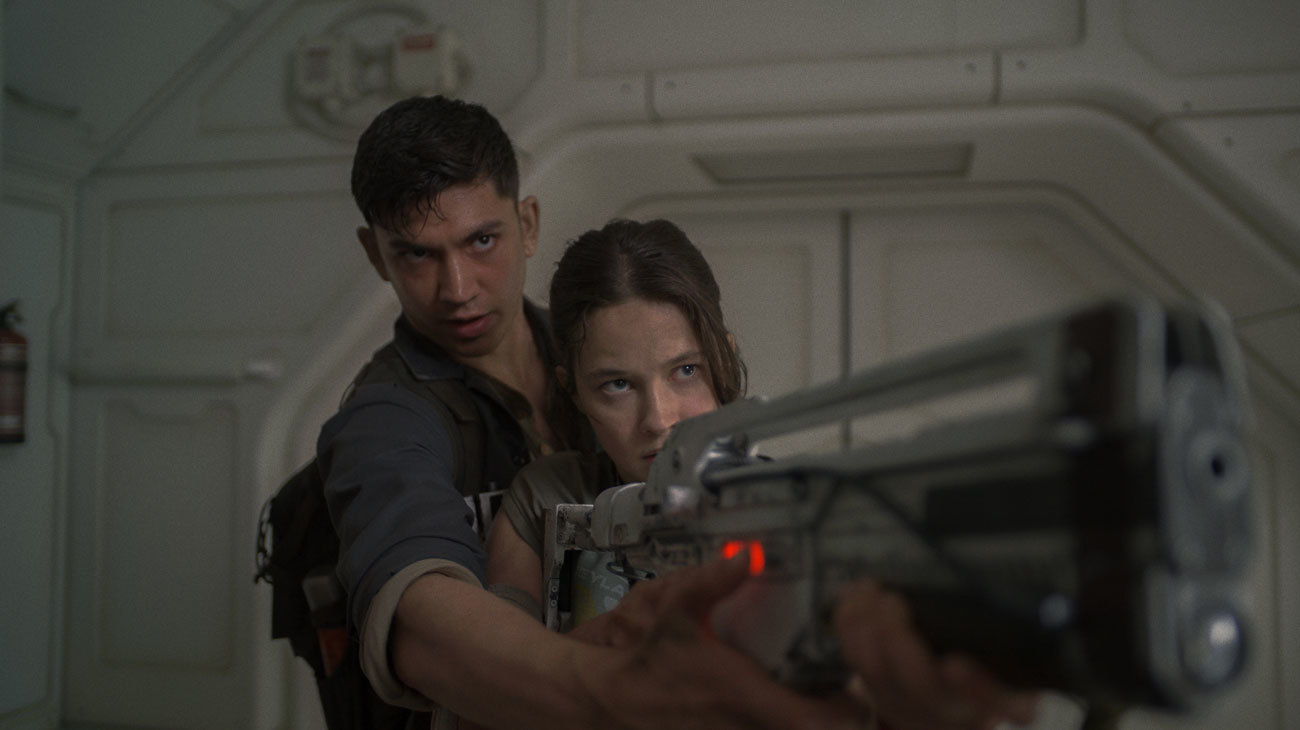
[Ed. note: Major spoilers ahead for Alien: Romulus, and for Alien.]
But while Rain is a good-natured attempt at recapturing Alien’s magic that doesn’t jibe well with the mechanisms of modern blockbusters, the CG “return” of the late Ian Holm as a major Romulus character is franchise reverence at its most sinister and skin-crawlingly corporate.
Ian Holm’s character, Ash, is one of the most fascinating, memorable elements of the original Alien. This resolute, bizarre science officer, eventually revealed as a secret android, was sent by the mysterious Weyland-Yutani corporation to ensure its best interests are always served, no matter the cost. He’s a cold, careless, logic-only machine that prioritizes potential profits above human lives, and he’s willing to kill everyone aboard the spaceship Nostromo in the hope that there’s some way to make money off the Xenomorph. He’s also Alien’s least subtle and most effective thematic device, letting us know that there’s a terrible cost to putting profit ahead of humanity, in the future just as much as in the present.
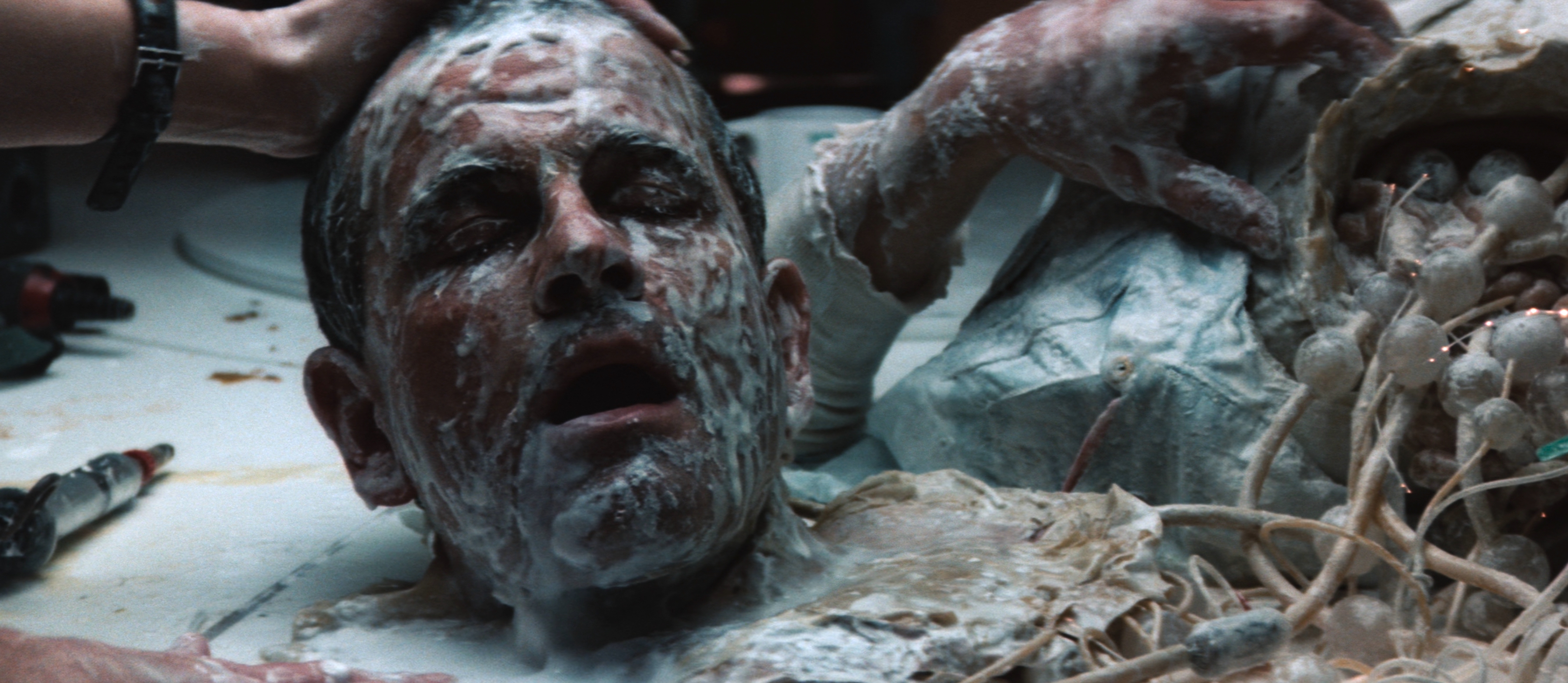
That theme does Álvarez no favors in Alien: Romulus, where he decided to use CGI to recreate Ian Holm’s 1979 face and voice, though the actor died in 2020. It’s clear that Álvarez is a fan of Holm’s performance in Alien, but this act of nonconsensual digital necromancy feels as soulless, calculated, and driven by profit as Ash the android was in the original movie.
This digital faux resurrection isn’t unique to Romulus, but it does feel more galling here. The digital Holm isn’t a quick posthumous cameo like digital Harold Ramis in Ghostbusters: Afterlife; his new android character, Rook, reappears constantly throughout the movie. And each time, this specific comparison feels inescapable: The people behind this movie valued profit for their company above all, no matter the human cost. That metaphor carries through Romulus, too. Whether it’s Rain being stripped of any identifiable weakness or humanity or the cloying way that recognizable lines and props get fed straight to the camera, the whole movie feels as artificial as the franchise’s androids.
